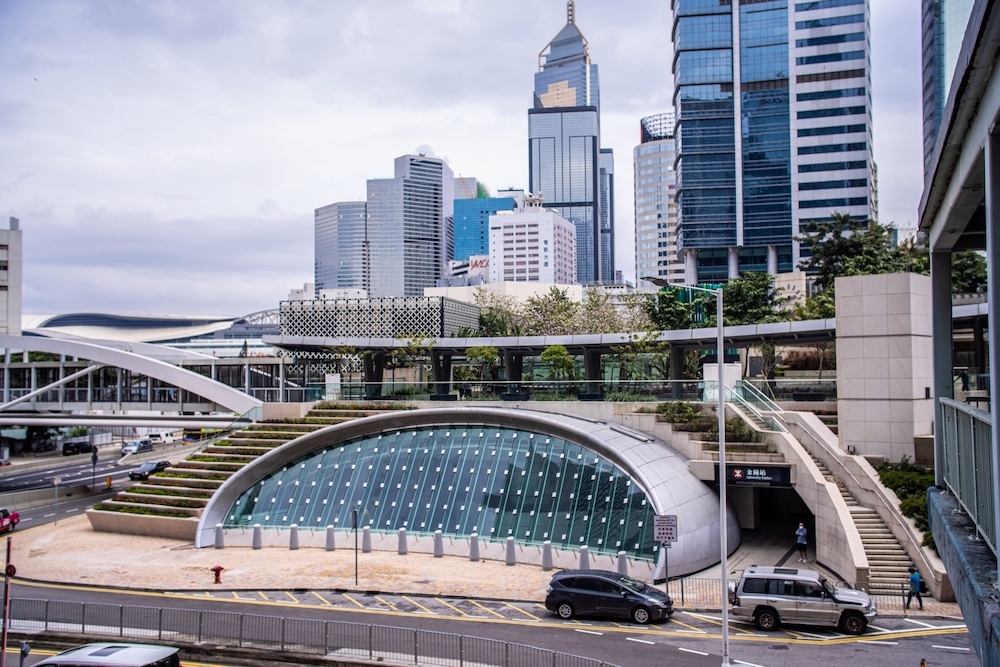In Chinese philosophy, wood nurtures the flow of the life cycle, and the process of renewal. Wood nourishes and gives life to Fire. Translating these characteristics – human energy, leadership, assertiveness and decision-making come to the forefront, balanced by an understanding of connectedness, compromise and harmony.
Wood is therefore related to both stability and flexibility. People with a strong wood element in their astrological chart are considered to be potential business leaders, since their solidity refers to inner strength, while their resilience is linked to a natural flexibility that allow them to adapt quickly.
In Asia-Pacific’s competitive markets, well-rounded junior leaders are increasingly in demand – but often in short supply. Talent development and training programmes have gained a high profile, as companies seek to educate the next generation of managers.

For future leaders, certain developmental areas are important. “From a self-leadership perspective, emerging leaders will focus on four key competencies: self-awareness, learning agility, influence and communication. These are carried with you all through your leadership journey,” says Sureish Nathan, vice-president of the Center for Creative Leadership (CCL) in Singapore, which provides high-impact, experiential leadership training programmes from its Singapore campus for Asean-based companies, and onsite for clients in Malaysia, Thailand, China, India, Korea, Japan, Hong Kong and Australia.
Companies may also be looking at a larger strategic orientation when developing upcoming talent. “That may include establishing a common leadership language and embedding their own competencies and values into a programme,” says Nathan.
“In Asia, emerging leaders tend to take on positions before they have learnt how to lead,” says Nathan. “They need the challenges of building relationships as well as getting results. People become better leaders when they get a better understanding of themselves, the impact they have on others and how people respond to their leadership.”
CCL delivers both custom and public training courses that cut right across business sectors, and involve complex psychometric assessments and diagnostics, plus one-to-one embedded coaching within larger group sessions. However, the complex layers of management training often require the company to deliver “multi-phase programmes” for its promising staff.
“These bring together the whole range of leadership training goals and expected outcomes, combined with external and internal support after the training is completed to ensure that companies and individuals sustain the change they want to make,” says Nathan.

The talent development cycle is particularly apposite to the hospitality industry, which is witnessing sustained growth across the region. TMS Asia-Pacific, the largest specialist travel, tourism and hospitality recruitment and HR consultancy firm in the region, entered the executive training arena in July 2009 with the launch of its first TMS Academy in Singapore. It has since established similar concepts in Bangkok, Beijing, Shanghai and Sydney.
“We have seen particularly high demand for our Revenue Management course, as hoteliers want young professionals to be more financially savvy than ever before when entering the hospitality sector,” says Adelyn Ngion, TMS Academy regional director. “Good customer service and deportment skills are just not enough in today’s climate. Equally important, the uptake of our eMarketing course has more than doubled, as more companies try to capitalise on their social media and web 3.0 strategies.”
Events management is another pivotal area for training emerging managers. “We are seeing more and more large-scale, world-class events and meetings being held in this region, and the right talents and skills are needed to organise and manage them,” says Ngion. “On the lower end of the scale, organising a company conference or meeting is equally important, and often we see this key role being left to the office junior, receptionist or secretary to undertake with very little training, experience or understanding of the methodology required to do it effectively.”
Demand is proving strong throughout the region, though TMS notes significant training opportunities in developing markets such as Cambodia, Thailand, Vietnam and China. “A plethora of international and boutique hotel brands are opening new properties in these regions, and the need to impart skills, knowledge and DNAs is of the utmost importance to hotel owners and corporate offices,” says Ngion. “Growth especially in China is exceptional, and we see this as without doubt our strongest potential market, where we will customise and launch a more localised product.”
The Ascott Centre for Excellence (ACE) is the global hospitality training centre of The Ascott, the world’s largest serviced residence owner-operator. Opened in 2008 in Singapore, ACE trains employees located in Asia-Pacific, Europe and the Gulf. “We train about 600 people, both Ascott and non-Ascott participants, at ACE each year,” says Yvonne Oo, The Ascott’s senior vice-president of Human Resources. “The centre provides a range of proprietary programmes covering operations, customer relations, team bonding, and supervisory and leadership skills to staff in 20 countries.”
Besides developing Ascott’s own human capital, ACE helps to groom talent for the hospitality industry. It was appointed by the Singapore Workforce Development Agency to conduct Workforce Skills Qualifications relating to hotel and accommodation services. Leadership Development and Finance courses currently have the most number of participants.
A founding principle of ACE was to identify and attract passionate hospitality professionals, and nurture them to reach their full potential. “Younger participants typically prefer a faster pace of teaching and require current examples which they can relate to,” says Oo. “We therefore use different methods, such as computer-aided training, experiential training through games and activities outside the classroom, and simulated training through scenario role play. We also share information and best practices through our intranet to keep them engaged and stimulated.”
Empowerment is viewed as another critical element in cultivating the next generation of hospitality leaders. “The keys to an effective empowering programme are confidence, knowledge and trust,” says Markland Blaiklock, senior vice-president of Sofitel Asia-Pacific. As a member of the Accor umbrella brand, Sofitel utilises the Accor Academy, a worldwide training and development network of 16 academies. It facilitates internal training programmes for all employees – or “Ambassadors” – both in terms of upholding brand principles and developing professional knowledge. All employees are expected to attend at least one training programme per year.
“The central elements for training are creating a balance between individual differences, sharing the company’s vision and values, and a high level of satisfaction within the team,” says Blaiklock. “Our training activities focus on building trust, recognising individual strengths, styles and skills, allowing differences and mistakes, and giving respect. With this basic foundation, our Ambassadors are encouraged to contribute their ideas and, at the same time, learn from others.”
Among Sofitel’s brand-related training programmes is “Keys of Luxury”, which focuses junior staff’s minds on being successful in the competitive upscale hospitality market. One of the Keys modules is titled “Empowerment”. “We motivate our subordinates to take ownership of their tasks, while giving them directions and the authority they need to complete their various assignments,” Blaiklock points out.
All front-of-house staff undertake the 14-module Fit For Business training programme, which focuses on staff attitudes, plus various sales and service techniques. “The modules include a number of creative and interactive activities, such as role plays, group workshops, live experiences, guest speakers and outdoor activities to broaden the scope of learning and increase motivation. All of these create confidence in the “Ambassador” knowledge and trust between colleagues and managers,” says Blaiklock.
Developing staff to meet the evolving demands of the business events sector is increasingly critical, especially in fast-growing markets like China, says Blaiklock. “We studied the market and see a significant potential for events industry from both overseas and the rapidly growing domestic market. The success of our human resources starts from selecting the right people, developing and retaining our Ambassadors. This is one of our main preoccupations.”
A self-driven willingness to learn is also crucial. “In most Asian markets, there is a lot of passion and desire to grow professionally, so getting participation for training sessions and seminars is not a problem,” says Andrew Newmark, Marriott International’s regional director Asia-Pacific of Talent Development and Learning. “People want to work to develop their careers to the next level.”
Marriott conducts much of its employee training in-house. In the early stages of career development, the content follows a broadly similar format across the different brands, which include The Ritz-Carlton, JW Marriott and Courtyard by Marriott. “For associates, training begins with our orientation programme in the first week. We then have a carefully managed training programme that we use as staff develop their careers, right up to management level. Good training helps associates understand the brand values, and match these to their service performance,” says Newmark.
Promoting dialogue is a widely used training tactic. A daily meeting is held in each hotel, with junior staff encouraged to talk about and share their experiences. Skill-based training is tailored to improving the fundamentals for performing each role. Managers are trained to “manage change” and help develop young associates into future leaders.
“Some of our core management programmes sometimes use external facilitators and experts, particularly in areas like sales training,” says Newmark.
Language is one of the challenges in a diverse region. “The basic content of our training programmes is the same, but in countries like Japan, South Korea, China and Thailand, the materials are translated into the local language. This helps both the associates and the management putting the programmes together,” says Newmark.
China, Thailand and India are shaping up as the three largest regional hotel markets for nurturing new talent. “China is the fastest growing market, and Thailand is a little ahead of India now in terms of hotels, but India will overtake it in the next couple of years,” says Newmark.
In 2009, Marriott launched the Voyager graduate training programme in India, beginning with around 40 students and expanding to 50 for the second intake in 2010. Graduate trainees, who are selected from local hotel colleges, spend one year at a particular hotel, then move to another in the second year – and undertake a series of training programmes en route. “The aim is to bring out graduates that can become assistant managers,” says Newmark. This pilot training project is set to expand regionally. “We are looking towards taking the programme to China soon,” says Newmark.
FIVE STEPS TO REACH THE TOP
In Chinese astrology, the Wood element is associated with decisive, competitive but balanced leaders. So the five key characteristics to evoke in leadership training events are:
1. Increased personal effectiveness
2. The ability to lead with credibility
3. Openness and approachability in a team environment
4. Showing tolerance and managing conflict
5. Able to accurately assess how others perceive and respond to one’s leadership


